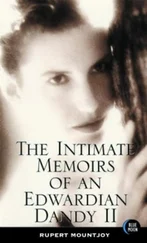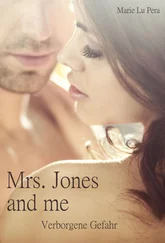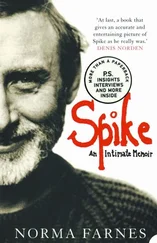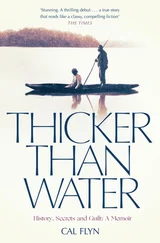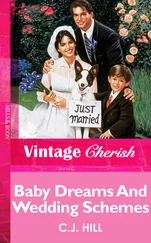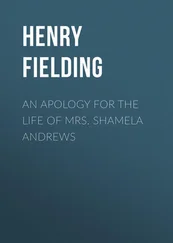Being able to showcase the very best talent in the world to emphasize the importance of the arts was one of Mrs. Kennedy’s favorite things to do, and she was very successful at getting the most sought-after performers to come to the White House. For this spectacular evening, she and the president had invited people who truly appreciated this once-in-a-lifetime chance to hear Casals perform in the United States. The guest list included composers Leonard Bernstein; Aaron Copland; Eugene Ormandy; and Leopold Stokowski; as well as Henry Ford II; Thomas J. Watson, the founder of IBM; oil tycoon Edwin Pauley; and Alice Roosevelt Longworth, the daughter of President Theodore Roosevelt, who had been in attendance the last time Casals played at the White House in 1904. Thus it was not just Casals himself, but also the collection of guests that made the night so memorable. I was privileged to have been one of them.
Mrs. Kennedy was in her glory and as usual, she looked ravishing. It was a white-tie event and everyone in the room was dressed in their most formal attire, but Mrs. Kennedy stood out among everyone with the way she carried herself, and the smile that lit up her face the entire evening.
There had been a lot of publicity surrounding Casals’s performance at the White House, and while Mrs. Kennedy thoroughly enjoyed the event, when it was over she was eager to get out of Washington. So the next day we headed to Middleburg, for a few days at Glen Ora.
Still beaming from the success of the Casals performance, Mrs. Kennedy had a stack of newspapers she brought with her. As I drove, she sat in the front passenger seat and read some excerpts of the rave reviews to me.
“It really was a marvelous evening, Mrs. Kennedy,” I said. “You should be very proud of what you’ve accomplished.”
“Thank you, Mr. Hill,” she said with a smile. “I’m so glad that you were able to enjoy the evening. I know it wasn’t the same as if you had been a guest, because you were working, but I wouldn’t have wanted you to miss such a special experience.”
“I do appreciate that, Mrs. Kennedy. That’s very thoughtful of you.”
“I hope you know that I appreciate everything you do for me, Mr. Hill. You’ve certainly changed my view of the Secret Service.”
ON FRIDAY MORNING, November 17, I drove Mrs. Kennedy from Glen Ora to ride with the Piedmont Hunt, while her horse Bit of Irish was transported by trailer.
It had been a long time since she’d ridden and she was excited to be back in the Virginia hunt country. Dressed in jodhpurs, a blazer, and boots, with not a stitch of makeup on, she looked even more beautiful than she had in her fancy gown at the Casals concert. This was the Mrs. Kennedy I had come to know—at ease and comfortable in her own skin, away from the public eye.
“We might have quite a long ride today,” she said. “I’ll be joining everyone for the hunt breakfast when we are through so I may be longer than usual.”
“That’s fine, Mrs. Kennedy. Just enjoy yourself and I’ll catch up with you when you’re ready to leave.”
Behind her, the riders were assembling, as the hounds scattered around barking. I noticed the handler seemed to be having a bit of difficulty with her horse.
“Bit of Irish looks anxious to go,” I added. “Be careful out there.”
She glanced at the horse and said, “Oh, he can be a handful, but I’ll be in control. Don’t worry, Mr. Hill.” Then she broke into a grin and said, “You be careful driving over all that rough terrain trying to keep up with me!”
I laughed and watched as she walked toward the rest of the riders who had gathered in the meadow.
“Good morning, Jackie!” they called. “So great to see you!”
“Good morning!” she replied. She was so relaxed in this environment. Here she was just another rider in the Hunt Club. They didn’t treat her any differently than anyone else, and that is what she loved. Here she could shed the first-lady moniker and just be Jackie.
I watched as she put her foot into the stirrup and mounted the horse. Then I drove the station wagon to place myself in a position where I could observe the group as they started on their ride across the rolling hills of the Mellon property. The whips were cracking, the hounds were yelping, and I wondered how the hell they thought they could sneak up on a fox with all that racket.
The riders set out along the course for the day and one by one they would jump over the rail fences and hedges at various points. Mrs. Kennedy loved to jump, and she was very good at it. I drove slowly along the country roads trying to keep the group in sight, but it wasn’t always easy.
Things were going along well on this particular morning, when I noticed a man crouched down in the field, just ahead of the riders.
Oh crap. As I got a bit closer, I recognized the man as Marshall Hawkins, a local photographer noted for his pictures of horses and the various hunt clubs in the area. He had positioned himself near a fence the group was about to jump. The hounds were running silently, and the only sound you could hear was that of the horses’ hooves hitting the ground as they galloped closer and closer. I was on the road, a good hundred yards from the fence, too far away to do anything other than yell. Yelling, though, I figured, could potentially make matters worse. I didn’t think Mrs. Kennedy was in any danger, but I knew she would be furious if Hawkins managed to get a photograph of her.
I got as close as I could and stopped the car, just as the group began jumping the rail fence, one by one. Hawkins was still crouched in the grass, not making a sound. Then, just as Mrs. Kennedy approached the fence, he suddenly stood up and started snapping away.
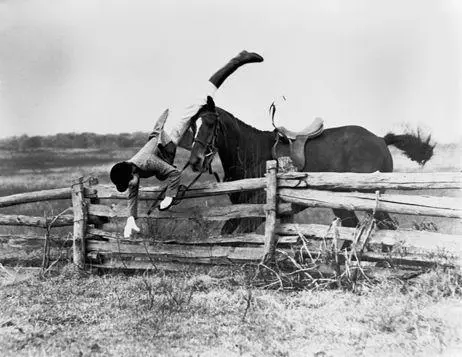
The sudden movement and sound of the camera caught Bit of Irish by surprise, and the horse reacted by digging in his front feet in an abrupt stop.
I watched in horror as Mrs. Kennedy went flying off, over the head of her horse, and over the rail fence, headfirst.
I jumped out of the car, and was about to leap over the property fence that bordered the road when Mrs. Kennedy got up, remounted, and rode away with the rest of the group without saying a word. She had put her arms out in front of herself to break her fall, and thank God she appeared to be all right. Now my fear for her safety turned to fury at the photographer.
I ran across the meadow, adrenaline coursing through my body.
“What the hell are you doing?” I screamed.
He hadn’t realized I was watching and seemed startled to see me coming toward him in a rage.
Seconds later I was standing eye to eye with him.
“What the hell are you doing?” I repeated.
“What I always do,” he answered caustically. “Taking photos of the hunts in the field.”
“Damn it! You could have got Mrs. Kennedy seriously injured.”
I reached for his camera and said, “Give me that goddamn film, Marshall.”
“Oh no,” he said as he clutched the camera to his chest. “This is mine and I’m keeping it.”
Unfortunately, this was a personal issue, not a matter of national security, and I was pretty sure he knew that. I would have to bluff him into giving me the film.
“You don’t want to embarrass Mrs. Kennedy, do you?” I asked. “If you use that photo of her falling, she will be humiliated. Is that what you’re after?”
“I’m not giving you this film, Clint.”
I tried to convince him but realized it was futile. He knew he had a valuable shot, and he wasn’t falling for my efforts to get the film. I had to get back to the car and catch up with the hunt, so I just shook my head in disgust and walked away.
Читать дальше



